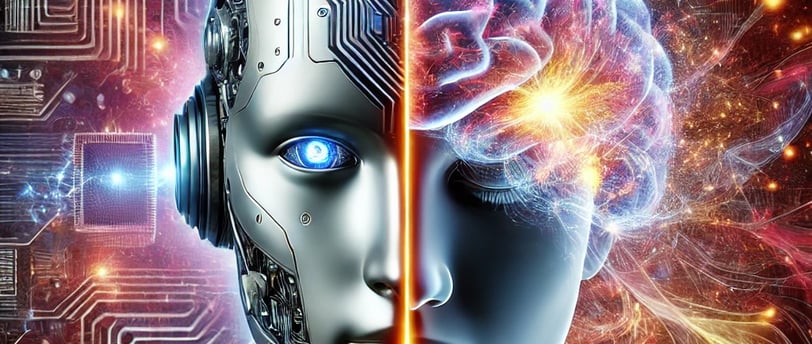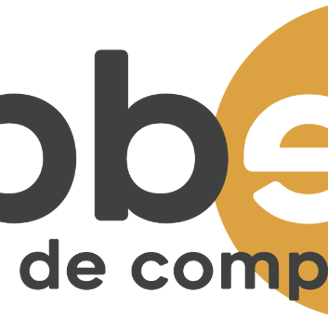How France Is Shaping the Future of AI: OpenAI vs. Mistral
Discover why France is becoming a key player in global AI, how OpenAI and Mistral compete in this growing market, and why culturally adapted content and digital sovereignty matter more than ever.
VEILLE ECONOMIQUE
Lydie GOYENETCHE
4/1/20256 min read


Why the French Market is Ripe for AI Expansion—and What OpenAI Can Offer Compared to Mistral
France, known for its refined culture, deep intellectual tradition, and strong commitment to human rights, may not be the first country that comes to mind when we talk about artificial intelligence. Yet, it is fast becoming one of the most interesting and strategically important AI markets in the world. From its academic excellence and engineering prowess to its emerging tech ecosystem and national sovereignty strategy, France offers a unique environment where AI can thrive. This article dives into the size and shape of the French AI market, its needs, strengths, weaknesses, and competitive landscape—with a special focus on how OpenAI and French rival Mistral stack up in meeting those needs.
The French AI Market in Numbers
As of 2023, the global AI market was valued at approximately 150 billion dollars and is projected to reach over 500 billion dollars by 2028. In France, the AI sector is expected to hit 8.9 billion dollars by 2025, growing at an annual rate of over twenty percent. The country is home to more than six hundred AI startups and has seen an increase of over twenty-four percent in their number since 2021. While still smaller than the United States or China, France has positioned itself as a serious player, particularly in the field of ethical and open-source AI.
What Makes France Unique in the Global AI Landscape
France's AI ecosystem is defined by several key characteristics. It boasts academic excellence, standing as the third country in the world by number of AI researchers. Institutions like INRIA, CNRS, Sorbonne, and École Normale Supérieure are at the forefront of global AI research. Since 2018, the French government has poured over 1.5 billion euros into AI through its national AI strategy. In 2023, a second phase of investment, dubbed AI Strategy 2.0, was launched to scale up this commitment. With unicorns like Hugging Face and now Mistral AI, France is proving that it can innovate at a global level. Paris is now considered Europe’s top hub for generative AI. France also plays a leading role in the European Union’s AI regulation efforts, particularly the AI Act, which focuses on transparency, user consent, and risk mitigation. Unlike other countries, France emphasizes the importance of building sovereign technology, including open-source large language models and European cloud infrastructure.
OpenAI's Expansion into France
In October 2024, OpenAI announced the opening of its new office in Paris, marking its first permanent presence in continental Europe. This strategic decision acknowledges France’s rising profile in artificial intelligence and its vibrant tech ecosystem. Sam Altman, CEO of OpenAI, emphasized that France is globally recognized for its innovation and leadership in both technology and AI. He expressed his enthusiasm about partnering with French institutions, developers, and businesses to help them fully harness the potential of AI technologies.
The Paris office will strengthen OpenAI’s collaboration with public and private stakeholders in France, contributing to the responsible deployment of AI across sectors. This move also aligns with OpenAI’s broader international strategy, which includes new locations in Brussels, Singapore, and New York. In France, OpenAI already collaborates with major players like Sanofi, using AI to accelerate clinical drug trials, and with Simplon, a training organization contributing to the OpenAI Academy initiative aimed at making AI tools accessible to all.
This expansion highlights the growing international appeal of the French market and reinforces its status as a European AI hub.
Digital Marketing and the Role of AI
Artificial intelligence is also revolutionizing digital marketing, and tools like ChatGPT and Sora are at the forefront of this transformation. In France, the adoption of AI-driven marketing remains more cautious and nuanced than in the United States, where aggressive lead generation and performance marketing strategies dominate. French businesses tend to prioritize brand image, content authenticity, and cultural resonance over purely data-driven approaches. This creates a unique context where AI must serve not just automation, but also creativity and relevance.
Tools like ChatGPT allow for high-quality content creation at scale, enabling companies to generate articles, social media posts, and customer responses tailored to a specific tone or audience. Sora, with its video generation capabilities, offers new horizons for visual storytelling, particularly valuable in sectors like tourism, luxury, and education—where emotional impact and aesthetics matter. However, to truly engage French audiences, content must go beyond translation. It must be culturally adapted, linguistically precise, and aligned with local values and humor.
This is where AI models need local fine-tuning, not just linguistically but also behaviorally. A French consumer will not respond to the same storytelling cues as an American one. Therefore, businesses operating in France must approach AI-enabled marketing with a hybrid mindset, combining global technology with local sensitivity. The need for culturally adapted content strategies highlights the growing importance of marketers and developers who can bridge AI capabilities with human insight. In the French context, the future of digital marketing lies not in replacing creativity with algorithms, but in augmenting it through intelligent, ethical, and locally resonant AI tools.
Strengths of the French AI Market
France benefits from top-tier talent thanks to its high-quality education in mathematics, engineering, and computer science. State support remains strong, with companies having access to public grants and R&D credits. France’s strategic location in the heart of the European Union offers access to multiple markets and streamlined regulatory alignment. The country also enjoys a unique enthusiasm for open-source projects, highlighted by companies like Hugging Face and Mistral that promote open and transparent AI models.
Weaknesses and Bottlenecks
Despite its strengths, the French AI market faces some hurdles. Cloud adoption remains relatively low, with only thirty percent of French companies having adopted cloud solutions, compared to seventy percent in Nordic countries. Data infrastructure is still lagging, particularly in large-scale, secure data storage solutions. Private investment is also somewhat limited, with venture capital funding in France still trailing behind the United States and the United Kingdom. Moreover, language barriers persist, as most large language models are trained primarily in English, and French-language performance often falls short of expectations.
The Needs of the French Market
The French market has specific needs that any AI provider must understand. Sovereignty is paramount, and tools must respect European data privacy laws such as the GDPR. There is a strong demand for multilingual models, especially those that understand French natively, including idioms and legal terminology. Explainability is another key requirement, as French regulators and businesses expect transparent models that allow for auditing and human oversight. Finally, accessibility for small and medium enterprises is essential. Scalable pricing and easy integration are non-negotiable if AI adoption is to spread beyond large corporations.
Mistral AI: The French Challenger
Mistral AI has quickly become a darling of the European tech scene. Founded in 2023 by alumni from Meta and DeepMind, the company raised over 100 million dollars just weeks after launching. Mistral’s key advantages lie in its open-source commitment, allowing for fully open and auditable models. Its European roots and alignment with continental regulations and languages make it especially appealing to governments and institutions. The company also emphasizes data privacy, ensuring native compliance with GDPR principles.
OpenAI: The Global Leader
OpenAI, creator of ChatGPT and GPT-4, offers state-of-the-art generative AI tools used across industries, from healthcare and law to education and marketing. Its key advantages include unmatched performance, with GPT-4 considered the most advanced large language model in existence. OpenAI also provides a robust ecosystem of APIs, integrations, plugins, and developer tools. Its multimodal capabilities allow it to process text, images, audio, and code, making it incredibly versatile. OpenAI’s tools are ready for enterprise deployment, with service-level agreements, security layers, and fine-tuning options. However, OpenAI has some limitations in the French context. Its models are less optimized for nuanced French language tasks. Being based in the United States, its infrastructure may raise privacy concerns for some users. Additionally, OpenAI is often perceived as a black box, with less transparency compared to open-source models.
Why OpenAI Still Has the Edge in France
Conclusion: A Hybrid Future
France doesn’t have to choose between OpenAI and Mistral. In fact, the most resilient companies may adopt a hybrid strategy, leveraging OpenAI for its cutting-edge performance and Mistral for its local transparency and regulatory alignment. With strong public support, a thriving research community, and growing demand, France is no longer just catching up in AI. It is shaping how AI evolves in the democratic world. The race is on, and the French market is not just a consumer of AI. It is becoming one of its architects.
This article is part of Euskal Conseil's series on digital strategy and AI readiness in Europe.


EUSKAL CONSEIL
9 rue Iguzki alde
64310 ST PEE SUR NIVELLE
FRANCE
0033782505766
euskalconseil@gmail.com

